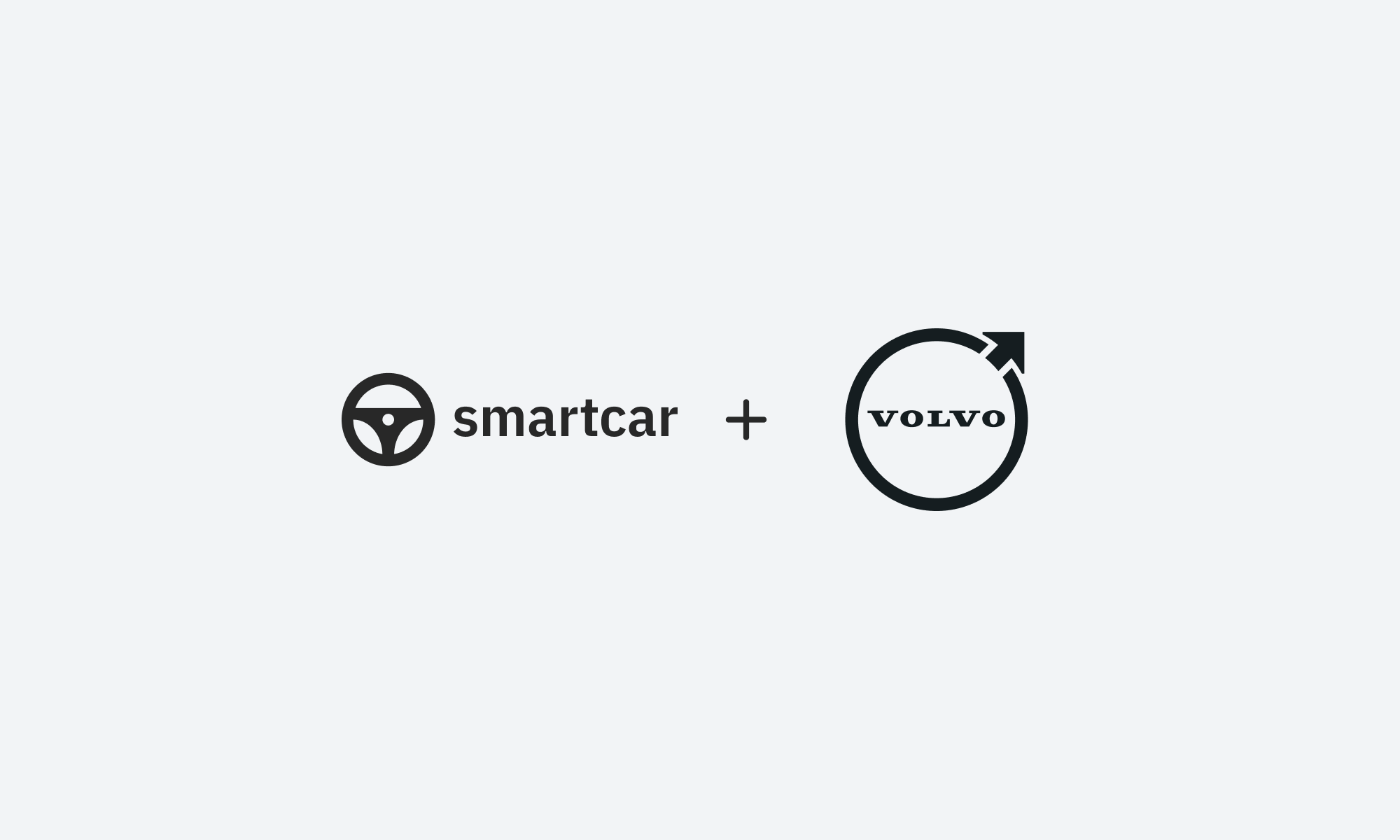TL;DR:
- OBD2 mileage trackers are inaccurate, inconvenient, prone to tampering, raise privacy concerns, and are expensive to scale as a driver-facing solution for collecting mileage data.
- A connected car API offers data directly from a vehicle's odometer. It's an easy onboarding experience, tamper resistant, consent-based, and cost efficieny for mobility businesses looking to scale mileage verification without putting driver privacy at risk.
Mileage verification is a critical component of many mobility businesses that use Smartcar — from auto insurance to auto repair and road usage charge programs. It’s safe to say that the most common method for verifying mileage is using on-board diagnostics dongles, also known as On-Board Diagnostics 2nd Generation (OBD2) mileage trackers.
But OBD2 dongles weren’t built for everyday consumer-facing apps and services. They were originally designed for vehicle diagnostics. If an average driver were to use it, they’re likely a car enthusiasts who love tracking performance data.
As Reddit user Etrigone put it, “Overanalysis is my thing, and I love tracking stuff. For the average person? Eh, nice, but hardly critical.” Most everyday drivers don’t have the same interest — or patience — to install and maintain a dongle just to track miles.
When you look at it that way, the idea of spending at least $30 per driver on shipping, installation, and troubleshooting costs hardly sounds worth it.
While OBD2 devices are a great investment for individual drivers who find value in using them, businesses need a more reliable solution.
Why OBD2 dongles aren’t the best mileage trackers
While these dongles are versatile and useful for tracking and diagnostics, they are far from ideal when it comes to mileage verification — especially for businesses that need to do this at scale.
Inaccurate (and incomplete) mileage data
Here’s something you might not know: OBD2 dongles can’t actually get your car’s actual odometer reading.
It calculates your car’s approximate mileage based on location or where a trip starts and ends. As you can imagine, inferring mileage based on location, speed, and trip data comes with inevitable inaccuracies — and small imprecisions can turn into significant errors.
Wrongly detecting the start and end of a trip can change auto insurance risk assessments or bad service recommendations.
There’s also the matter of data comprehensiveness. Are mobility businesses actually getting enough mileage data across their customer base to call their service reliable or effective?
While OBD2 dongles are traditionally known for their ability to deliver real-time data, they’re confined to the data accessible through a car’s OBD port (which by the way, does not include actual location and odometer data). The reliance on the OBD port makes these dongles a challenge for newer vehicles that aren’t equipped with a standard OBD port.
For instance, some EVs require drivers to purchase a separate adapter to use dongles. This is the primary reason why road usage charge solution provider, Emovis, used Smartcar to start enrolling Tesla Model 3s into its state programs.
Unintentional failure
Even if a dongle fits in your car, that doesn’t mean it works seamlessly. Some vehicles react poorly to OBD-II devices, triggering false alarms or draining the battery. These unpredictable issues create more headaches for both businesses and customers.
Adding to that inconvenience is the work that drivers have to put in on their end. Drivers have to wait for a device to arrive in the mail, figure out how to install it, and then hope it stays in place.
A loose connection or accidental nudge can easily knock it out, making the device unreliable.
Here’s the worst-case scenario: A dongle comes loose after being knocked over unknowingly by a policyholder’s computer bag. The device stops tracking miles, but their insurer has no idea why or when it happened. Without mileage data, the insurer either overestimates their monthly usage and moves them to a more expensive plan or pauses their policy until they manually verify their odometer.
Incompatible software
Here’s a point that’s often forgotten. OBD-II dongles often run on separate platforms that don’t easily integrate with existing systems. This creates extra work for businesses trying to sync mileage data with their current tools.
Auto insurers struggle to align dongle data with policy management, repair shops have a hard time tracking mileage for service reminders, and road usage charge programs face challenges integrating data into their billing systems. Instead of streamlining operations, OBD-II devices can end up adding more complexity.
Intentional tamper
Even if they’re properly installed, OBD-II dongles can fail intentionally. A driver planning a long road trip might unplug their dongle to keep those miles off the record, and there’s no way to tell. Meanwhile, the insurer continues calculating premiums based on incomplete data, unknowingly losing revenue.
Mileage fraud is a massive problem, costing auto insurers billions every year. Over half of drivers misreport mileage, and that’s led to up to $29 billion in losses. Mileage fraud throws off service reliability for other service providers too, like maintenance schedules for repair shops and billing for road usage charge programs.
Privacy concerns
Consumers today are more protective of their privacy than ever, and OBD-II dongles don’t exactly inspire confidence. With recent horror stories about data-driven car insurance gone wrong, data privacy has become a non-negotiable for many technology users.
Many drivers are not comfortable with a device plugged into their car, constantly tracking their data with little transparency. What information is actually being collected? Who has access to it? How is it being used? This is where the value of explicit data consent comes into play.
High expenses
OBD-II dongles are expensive. Insurers have to buy the hardware, ship it to customers, and replace lost or damaged devices. If a policyholder cancels their plan before the company recoups the cost, that’s money down the drain.
A new dongle can run $50 to $60 per unit, while refurbished ones still cost around $17. On top of that, businesses have to pay ongoing subscription fees per vehicle, plus the logistics of distribution, fulfillment, and returns. Instead of driving profitability, OBD-II dongles can quickly become a financial burden, especially compared to software-based alternatives that don’t require hardware at all.
Why an API is a better alternative to OB2 mileage trackers
Using a connected car platform like Smartcar is a compelling alternative that helps mobility businesses reduce overhead costs.
You get more:
Accuracy: APIs provide a car’s actual odometer reading, not an estimate based on trip data. That means no more guesswork, no rounding errors, and no frustrated customers disputing their reported mileage. With real-time, precise data, your business can offer fair pricing and reliable services.
Ease of use: Smartcar’s onboarding is as simple as a few clicks. No waiting for hardware to arrive, no complicated setup. Customers just log into their car account, approve a list of permissions, and they’re done. No dongles to install, no loose connections, and no risk of draining a car battery.
Reliability: Unlike OBD-II devices, a car API reads odometer data automatically and consistently. Customers can’t manipulate mileage records by unplugging a device, ensuring accurate data every time. That means less risk of your profit margins being lost to fraudulent claims.
Privacy: Transparency matters, and consent management makes that happen. With Smartcar’s permission-based onboarding, customers see exactly what data is being accessed — whether it’s their odometer, location, or more. They have full control, making it easier for mobility businesses to build trust.
Cost-efficiency: Smartcar gives you a predictable SaaS pricing that scales and adjusts to your needs. You won’t spend time and money on hardware devices, shipping, replacements, and repairs. Instead of dealing with logistics, your team can focus on what really matters: building great products for your vehicle owners.
Software solutions now make verifying mileage much easier an OBD2 mileage tracker. Interested to learn more about the Smartcar platform? Please don’t hesitate to request a demo. We’d be happy to help!





.jpg)
